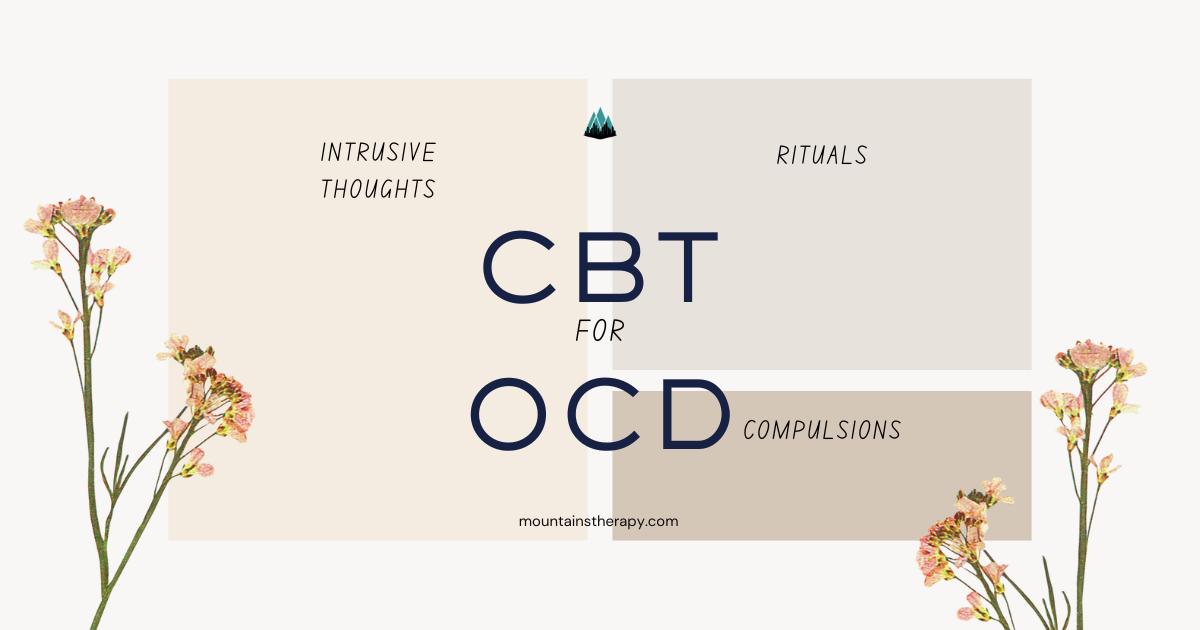Cognitive Behavioral Therapy for OCD: A Path to Freedom from Obsessive Thoughts and Rituals
Learn more about CBT Counseling and OCD Counseling.
In This Blog, You’ll Learn:
- What Cognitive Behavioral Therapy (CBT) is and how it helps with OCD
- How a Cognitive Behavioral Therapy treatment plan can guide you to long-term success
- Tools like the CBT triangle for OCD and CBT worksheets for OCD, anxiety, and cognitive distortions
- How to break the cycle of obsessions and rituals with CBT for obsessions and CBT for rituals
Understanding OCD and the Role of CBT
Obsessive-Compulsive Disorder (OCD) is characterized by distressing intrusive thoughts (obsessions) and repetitive behaviors (compulsions). These patterns can disrupt your daily life and emotional well-being. CBT for OCD is an evidence-based treatment designed to break this cycle by addressing the thoughts and behaviors that sustain it. A Cognitive Behavioral Therapy treatment plan is personalized to each individual, focusing on understanding the root causes of obsessions, learning new ways to manage triggers, and creating practical strategies for lasting change.
What Does a CBT Treatment Plan for OCD Look Like?
1. Assessment and Goal Setting
- The process begins with understanding your unique challenges. Are obsessions related to contamination, orderliness, or harm? Are rituals such as excessive handwashing or checking taking over your life? A comprehensive evaluation helps your therapist craft a plan tailored to your needs.
2. Psychoeducation
- Learning about OCD and the principles of CBT for adults can empower you to understand why the disorder persists and how you can overcome it. Psychoeducation often includes resources like CBT worksheets for anxiety and OCD to help track progress and recognize triggers.
3. Targeting Cognitive Distortions
- Obsessive thoughts often arise from cognitive distortions, such as catastrophizing or black-and-white thinking. Using CBT worksheets cognitive distortions, you'll learn to challenge these thought patterns and replace them with more realistic perspectives.
4. Exposure and Response Prevention (ERP)
- ERP is a core component of CBT for obsessions and rituals. This involves gradual exposure to fear-inducing triggers (e.g., touching a “dirty” surface) while resisting the urge to perform compulsive behaviors. Over time, this technique reduces anxiety and helps you regain control.
5. Behavioral Techniques
- By identifying and altering unhelpful behaviors, CBT helps you build new coping mechanisms. For example, instead of checking a locked door 20 times, you’ll practice trusting that it’s secure after checking once. Behavioral interventions are bolstered by tools like CBT worksheets for OCD, which help track and reinforce progress.
Tools and Techniques in CBT for OCD
- The CBT Triangle for OCD
The CBT triangle for OCD is a visual framework that shows how thoughts, feelings, and behaviors influence each other. By addressing one part of the triangle, such as thoughts, you can create positive changes in the other areas. - CBT Worksheets for OCD and Anxiety
Practical tools like CBT worksheets for anxiety help you document intrusive thoughts, identify triggers, and evaluate your emotional responses. These worksheets serve as a guide to understanding and managing your symptoms. - CBT for Rituals
Compulsive rituals often feel like the only way to reduce anxiety. However, CBT for rituals focuses on breaking this reliance by teaching healthier alternatives to cope with discomfort. - Structured Goals in a Treatment Plan
- Every Cognitive Behavioral Therapy treatment plan includes clear, measurable goals. For example:
- Reduce compulsive behaviors by 50% within three months
- Decrease the intensity of intrusive thoughts using CBT worksheets cognitive distortions
- Practice ERP techniques weekly to build tolerance for triggers
Why Mountains Therapy Is the Best Choice for OCD Treatment
At Mountains Therapy in Montclair, NJ, we’re dedicated to helping individuals manage OCD, anxiety, and depression. Voted the best therapist near me, our team combines compassionate care with evidence-based practices like CBT. Whether you’re seeking anxiety counseling, a depression counselor near me, or a counselor near me for depression, we create personalized treatment plans to support your mental health journey. Our therapists specialize in crafting effective CBT treatment plans for adults, helping clients develop skills to break free from the constraints of OCD. From CBT for obsessions to ERP, our approach is designed to empower you with tools for long-term success.
Practical Tips for Managing OCD with CBT
- Use CBT worksheets for OCD to record and analyze your thoughts.
- Practice ERP daily to build resilience against anxiety triggers.
- Engage in self-care routines that reduce overall stress, such as mindfulness and exercise.
- Set small, achievable goals to track your progress in therapy.
Take the Next Step
OCD doesn’t have to define your life. With CBT for OCD and a personalized Cognitive Behavioral Therapy treatment plan, you can reclaim your freedom and confidence. Mountains Therapy, the best therapist Montclair NJ, is here to support you every step of the way. Reach out to us today to schedule an appointment and start your journey toward healing. Together, we’ll work to reduce the impact of OCD and help you achieve a balanced, fulfilling life.











